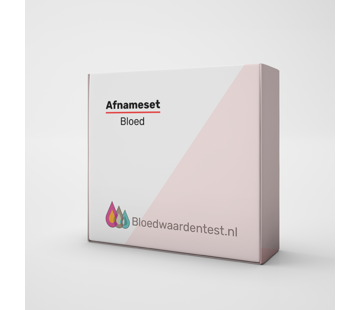Iodine Iodine hair loss
Iodine choose variant when ordering
- Blood from a serum (if you have to have a blood sample anyway, it can be taken without an extra tube)
- Spontaneous urine (if you order this test separately)
Iodine is an essential trace element. Trace elements are similar to minerals, but your body needs far less of them. Nevertheless, iodine is of vital importance, particularly for thyroid function. The thyroid gland needs iodine for the production of thyroid hormones.
Consequences of iodine deficiency
Without iodine, your thyroid simply breaks down. Initially, with iodine deficiency, your thyroid gland will swell and expand (goiter). The enlarged thyroid will also produce fewer hormones, causing a shortage of thyroid hormones (hypothyroidism). With a severe or prolonged iodine deficiency, a variety of symptoms will occur, including:
- Swollen thyroid gland (goitre)
- You get cold very quickly
- You're retaining a lot of moisture
- Fatigue, drowsiness and dizziness
- Plump face and drooping eyelids
- Hair loss and brittle nails
- Stiffness of arms and legs
- Frequent muscle cramps, muscle weakness and muscle pain
- Stomach and bowel complaints
- Hese voice and slow speaking
- Dry, flaky rough skin
- Acedia, apathy and depression
- You can't think clearly
- Complications of pregnancy and menstrual cycle
Your thyroid gland depends on the trace element iodine. Thyroid hormones are partly made up of iodine. For an optimal thyroid function you must therefore get iodine through your diet. Important sources of iodine that can contribute to an optimal thyroid function are:
- Fish (cod, mackerel, salmon, sole, sardines, etc.)
- Iodised salt (JOZO® and others)
- Crustaceans and molluscs
- Egg and onion
- Bread (preferably wholemeal)
- Unpolished rice
- Seaweed (kelp and kelp tablets)
- Yoghurt, quark and mozzarella
- Strawberries, banana and mango
- Cashew nuts
Both a deficiency and an excess of iodine can interfere with thyroid function and cause thyroid problems!
Method Serum: Inductively coupled plasma - mass spectrometry
Frequency: 1x per week (number of times an analysis is used in a given period)
Conversion factor: microg/dl x 0.0787 = micromol/L
Reference value(s) Human (NL): 2 - 8 microg/dl
Iodine from spontaneous urine portion.
Samples can be sent by post
Analysis 2x/week
reference values result is good if it is between 100 - 200 µg/l.
method (ICPMS)
Diagnosis and evaluation of iodine intoxication or iodine deficiency
elevated in case of: iodine intoxication iodine excretion
reduced in: insufficient iodine intake through diet.








